Curriculum
A Heights education is an education for realism, the fruit of which is a true apprehension of and appreciation for reality as it is. To attain this lofty end, a curriculum both integrated and ordered is necessary.
Therefore, in addition to a panoply of electives, from which a student may choose according to his particular interests, certain courses form the backbone of every boy’s academic formation in the Upper School. These courses are intentionally designed both with a logic in themselves and logic amongst themselves. In this way, what a student learns each year will lead naturally into what he learns in the next; what he studies in one discipline will be mutually supported by what he studies in the others–even if at times, these connections are indirect and subtle.
Below is an overview of the courses, which constitute this curricular backbone.
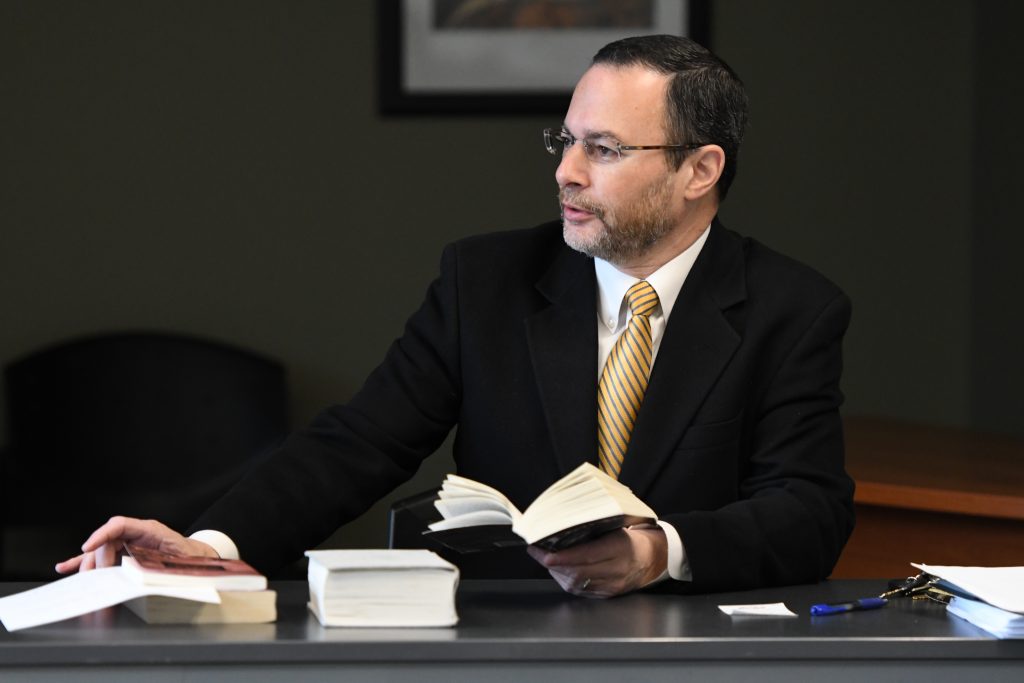
Literature
To study literature is to begin to enter into the mystery of human experience as it is connected to the real, to being. Literature is a vehicle for connecting with the true, the good and the beautiful. By studying characters in a novel, students are prepared to encounter the vast array of persons found in real life; and, ultimately, to encounter those three person who are the source of all reality and the fount of life itself.
Freshman and Sophomore years, students study literature in tandem with history, as part of our core humanities sequence.
Following the core humanities sequence, students may choose from a number of electives, found in our Course Catalogue.
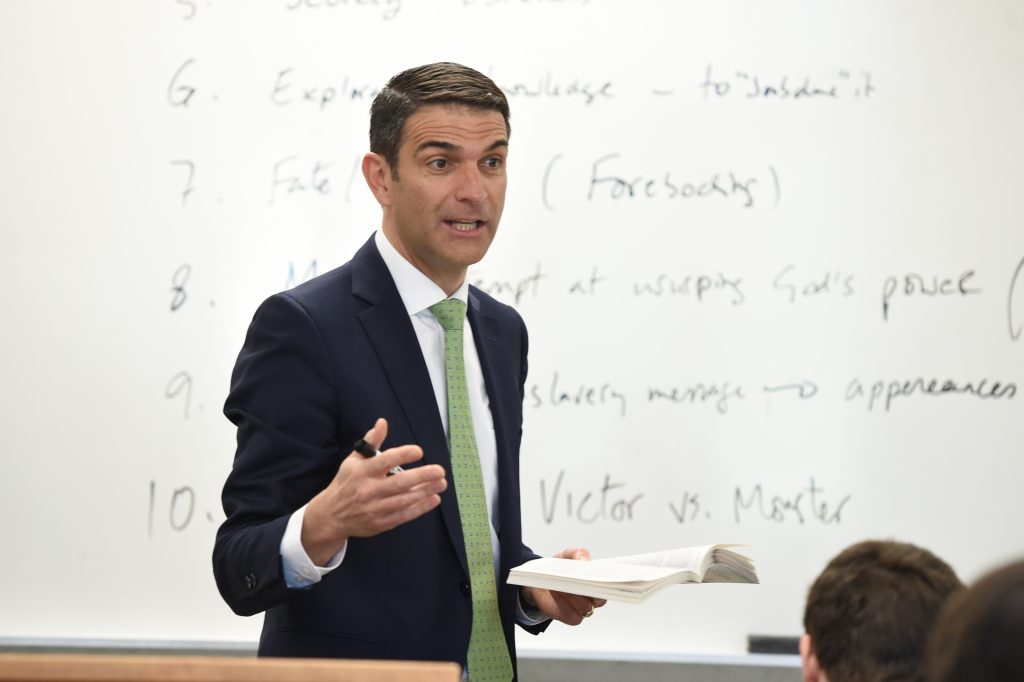
History
The aim of the historian is two-fold: to tell a true story and to tell a good story. More than an accumulation of data points, history is a profoundly human story with real actors working for noble or pernicious ends. To study history, one must integrate economic, social, political and geological factors into a vision of the whole, understanding how these aspects of the human story fit into the broader narrative of history. At the heart of the study of history is an examination of human nature itself, for one comes to know man by way of the many men he encounters–both in his own life and in the lives of those who came before.
Freshman and Sophomore years, students study history in tandem with literature, as part of our core humanities sequence.
Following the core humanities sequence, students may choose from a number of electives, found in our Course Catalogue.
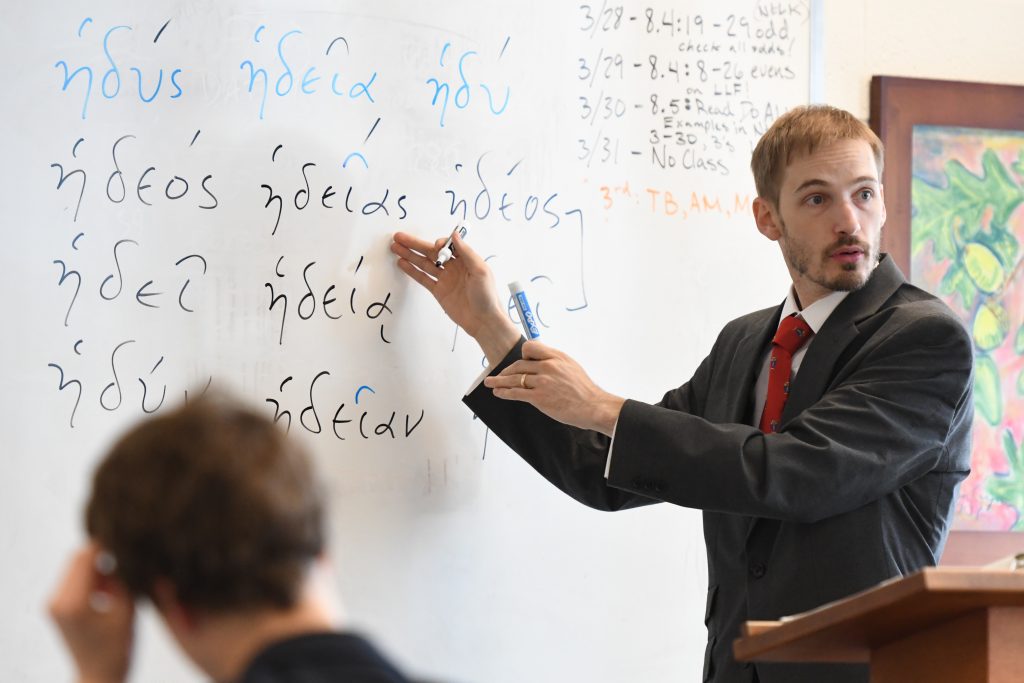
Language
The study of language is foundational for realism, as its very structure is rooted in the structure of reality. Nouns are our attempts to name substances and verbs describe modes of existence and change. Indeed, Frederick Nietzsche, an atheist and critic of realism, recognized the foundational value of grammar when he wrote, “I am afraid we are not rid of God because we still have faith in grammar.” By growing in their linguistic capacities, students develop a greater sensitivity to reality around them–not to mention the ability to engage with a greater temporal and geographic diversity of persons.
Every student at The Heights studies Latin, the lingua franca of western civilization for thousands of years. In addition to Latin, students may elect to study Greek and/or Spanish.
Required: Elementary Latin and Intermediate Latin
For more on other foreign language courses, see the Course Catalogue.
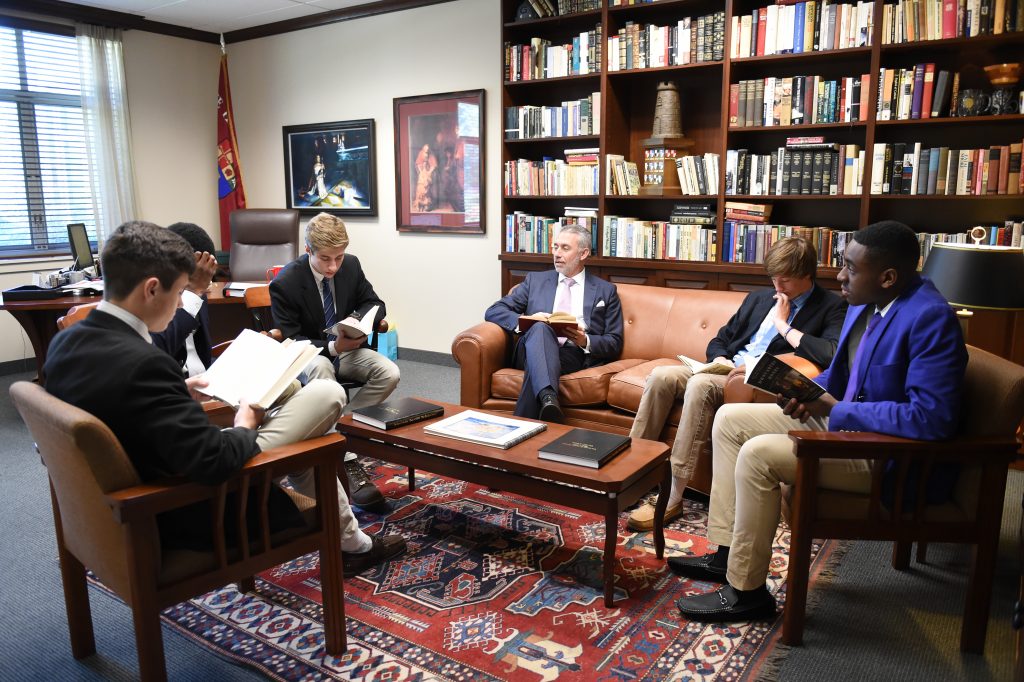
Philosophy
Truth is the conformity of the mind to reality, saying of what is that it is. To approach the truth is a lofty task that requires a robust formation in philosophy. Before one is prepared for a comprehensive study of the history of philosophy, however, a student must first have a training logic (both formal and material), as well as an education in natural philosophy and metaphysics. Thus prepared, a student is ready to dive into that great dialogue, which fosters a broad perspective of the metaphysical project of the West. As students compare the positions of different thinkers from different times they are able to examine the evidence for themselves and, thus, begin to arrive at the truth, which, as we have said, is the conformity of their mind to reality as it is.
Grade 9: Logic
Grade 10: Natural Philosophy
Grade 11: Metaphysics
Grade 12: History of Western Thought
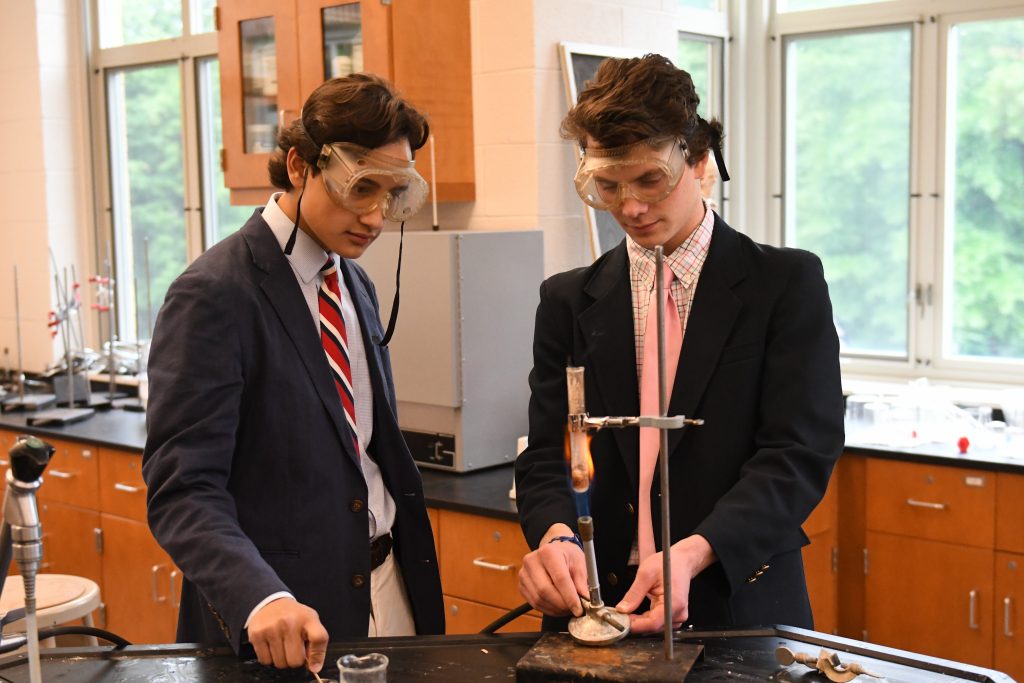
Empirical Sciences
Heights students approach the empirical sciences with a broad mind and an inquisitive spirit. As they learn to be attentive to the philosophical underpinnings that the empirical sciences assume, students are better able to understand the nature of the questions that the these sciences seek to answer, as well as the kinds of tools that they have at their disposal in seeking to answer these questions. In this way, students can better understand the workings of nature to see more accurately and thoroughly what is there. A typical progression in the empirical sciences is as follows:
Grade 9: Biology
Grade 10: Chemistry
Grade 11 and 12: Electives (See the Course Catalogue)
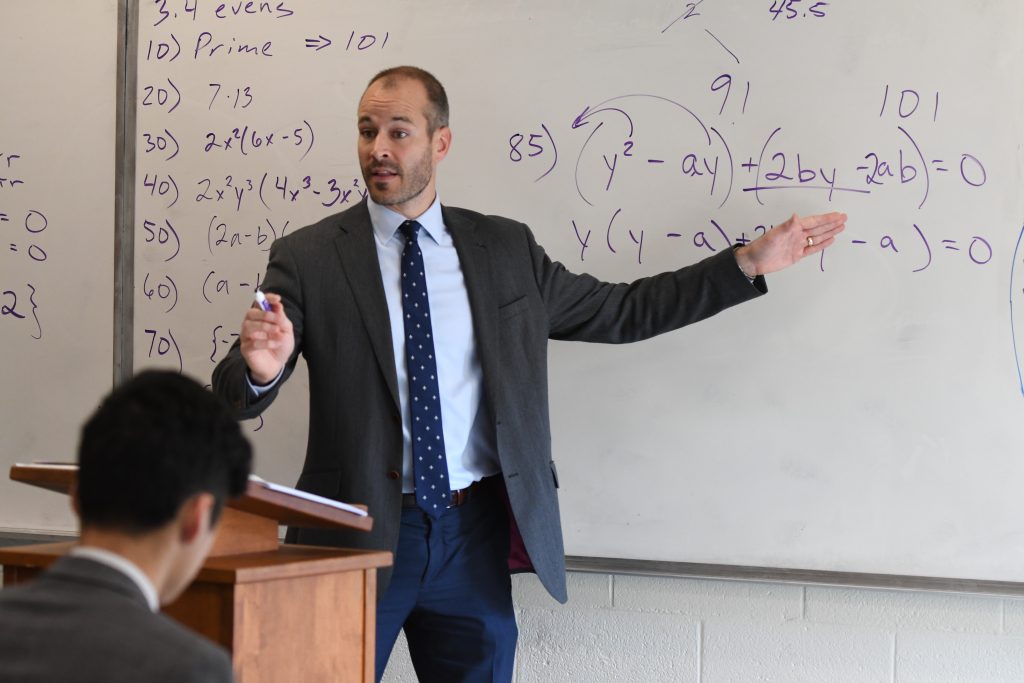
Mathematics
Mathematics is the science of quantity. Math is, therefore, about a particular aspect that we can abstract from being and which does not exist in itself. When taught properly, math is a contemplative exercise that trains the mind to appreciate order, harmony, and beauty. It is foundational for developing clear thinking and, for this reason, has been seen as a necessary preparation for further studies in philosophy. It has been reported (though some doubt the authenticity of this) that engraved on the door of Plato’s academy in Athens was the saying “Let no one ignorant of geometry enter.” Even if this is a legend, the spirit of the inscription highlights the importance of a mathematical education.
The following three course are required:
Beyond Geometry, students may take a number of courses, depending on their abilities and aspirations:
Pre-Calculus and the Derivative (Honors)
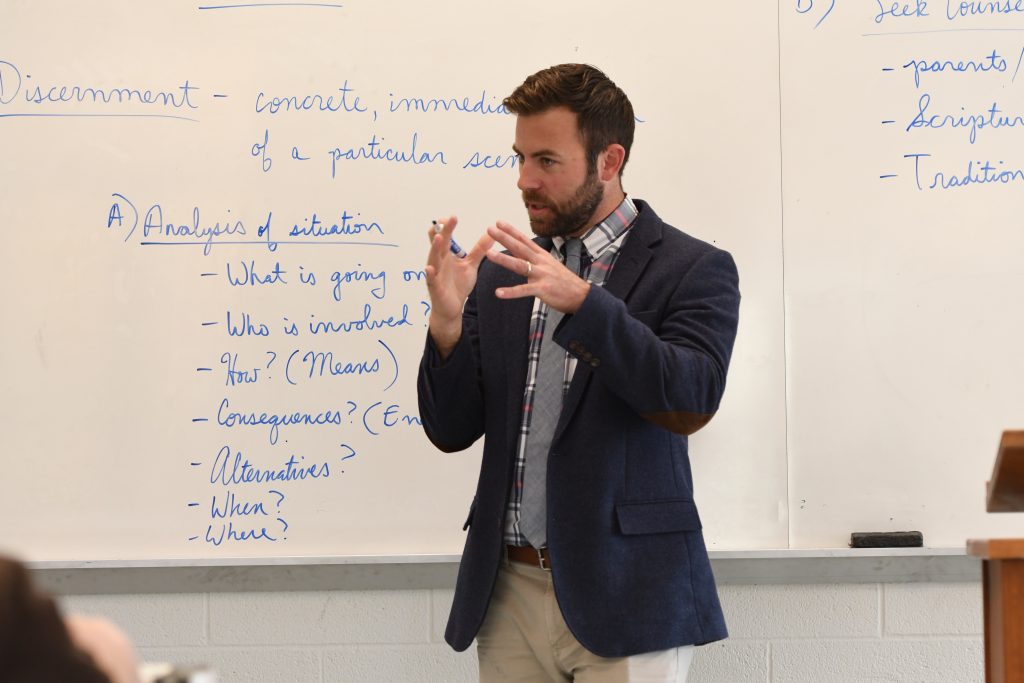
Theology
Theology has been called–and rightly so–the queen of the sciences. Based on God’s revelation to humans, theology is the highest science and the science that rightly judges all other knowledge. Without a proper theology, every other discipline is doomed to the same fate as Babylon, namely disintegration and disorientation. As the principles of any science are drawn from the real world and as God is the ultimate source of all reality, theology is both the root and apex of every discipline.
Grade 9: Person of Christ
Grade 10: History of Salvation
Grade 11: Moral Theology
Grade 12: Apologetics
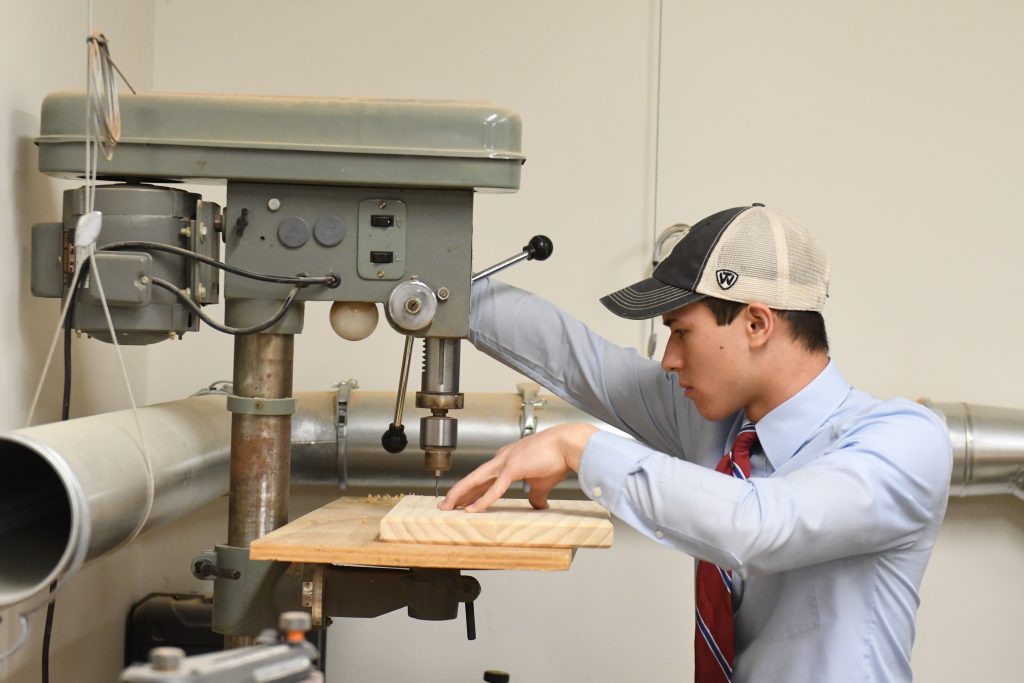
Electives
Freedom permeates all aspects of The Heights; and the curriculum is no exception. While we want to provide a backbone to our students’ academic formation, we want this backbone to be flexible enough to complement the unique gifts that each student has. Just as students in the Valley’s natural history class are encouraged to explore creation for themselves, so too are our Upper School boys given the freedom to pursue various electives that interest them. In this way, the natural curiosity of the Valley matures into a personal studiosity in the Upper School. As the proverbial Spanish song puts it, cada caminante siga su camino: every wayfarer follows his own path.
Explore our electives by visiting the course catalogue.